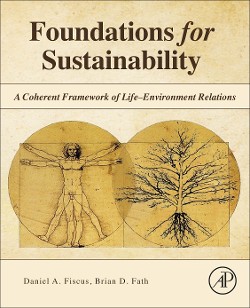30 November 2018
Holistic, network approach to life science needed to solve systemic environmental problems
‘Life’ is not best viewed as a property of an organism, but as a property of an integrated system of organisms, ecosystems, and the biosphere. Mainstream approaches to tackling sustainability issues treat life as a singular model, rather than as a system. Fath and coauthor Daniel Fiscus, from the Western Maryland Food Council, argue in Foundations for Sustainability: A Coherent Framework of Life-Environment Relations that this simplistic, reductionist approach is partially responsible for the global environmental problems we currently face.
“Symptoms of environmental degradation – climate disruption, mass species extinctions, nitrogen cycle disruption, ocean acidification, crises with food, energy, and water, and many more – are not improving, and we suggest that this situation directly calls into question the existing science, and its foundational ideas, theories, assumptions, and paradigm,” says Fiscus.
The book aims to challenge the mainstream view, and presents a roadmap for the reform of current thinking, presenting the case for a multi-model view of life on earth. Through describing better basic science and applied science results, Fath and Fiscus hope to increase the understanding of what is needed to achieve a world which is both environmentally and economically sustainable.

© Associated Press
In the nine chapters of the book, the authors say that many of the symptoms of the current environmental crisis relate to the prevailing approach, which treats living and environmental systems as if they are machines. Thus, the core idea in science has produced the conditions we see now – the world is running out of fuel and breaking down, like the mechanical system we have treated it to be. By adopting a multi-model, holistic view of life, science can provide leadership so the world can realize better environmental outcomes.
Fath and Fiscus identify the life-environment system and use this as the fundamental idea of their conceptual framework, which integrates the holistic ideas of other scientists taking the systems thinking approach to the environment, with the intention of building a larger movement. They cite examples where the holistic approach has been successful, such as that of the Research Alliance for Regenerative Economics (RARE - capitalinstitute.org/research-alliance-for-regenerative-economics/), which promotes building an economy and financial systems that support sustainability. Case studies such as local food production and community self-reliance show the value of integrated, holistic approaches to engage networks of individuals and enterprises that regenerate human communities and natural systems.
They propose six principles of holistic life science, including that it must be centered on the value of life, balance the holistic and reductionist approaches, and be able to model and understand complex life systems and be able to recommend actions for interacting with those systems. Fath and Fiscus also look at lessons they have learned from their own work in ecological network analysis and systems ecology to develop a framework and system of ideas to ensure a better relationship between humans and the environment.
“Throughout the book is the thread that life is not only organismal but also ecosystemic and biospheric. We are all integrated, such that if one part suffers, all suffer. And yet there are many win-win situations that make life better. We need to start building life-enhancing goals and structures into all aspects of our actions,” says Fath.
The authors are working on ways to make the messages accessible to general public, but say that their book will be most relevant to academics in biology, ecology, environmental science, sustainability, regenerative economics and related fields, as well as those looking to solve socio-ecological problems. The findings within the book are also important for governments and policymakers working towards sustainability.
“Instead of continuing piecemeal analytical approaches that continue to fail and may make matters worse, the holistic approach of the book holds promise, and explains rigorous science and practical applications by which we can reorganize our science, technology and culture… to achieve a human future in which the environment improves as we live,” says Fiscus.
Reference
Fiscus D & Fath B (2018). Foundations for Sustainability: A Coherent Framework of Life-Environment Relations. Cambridge, Massachusetts, US: Academic Press [pure.iiasa.ac.at/id/eprint/15513/]

NEWS
"Climate Modernity" - The 24H Challenge: How do we want to live and act in the future in Styria ?
Health fears can increase pandemic isolation habits in older Europeans
How circular waste management systems can benefit the environment
Launch of the Northern African Applied Systems Analysis Centre
How we measure the effects of methane matters for climate policy


